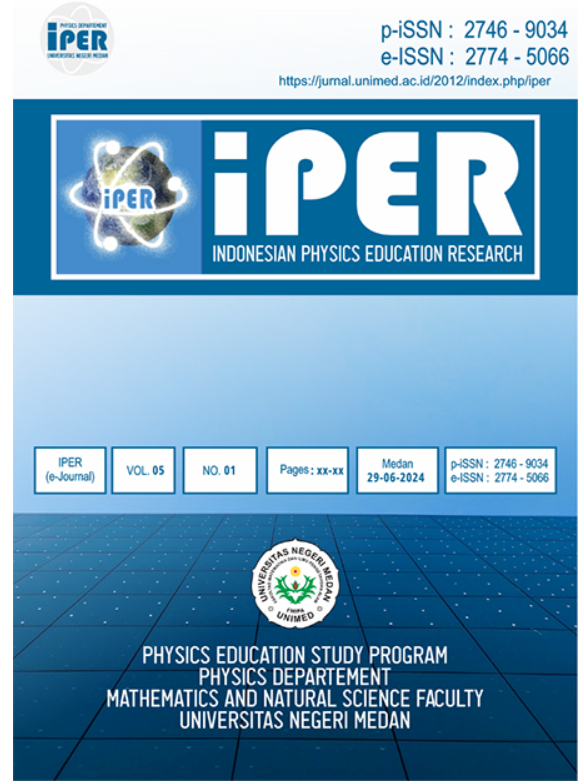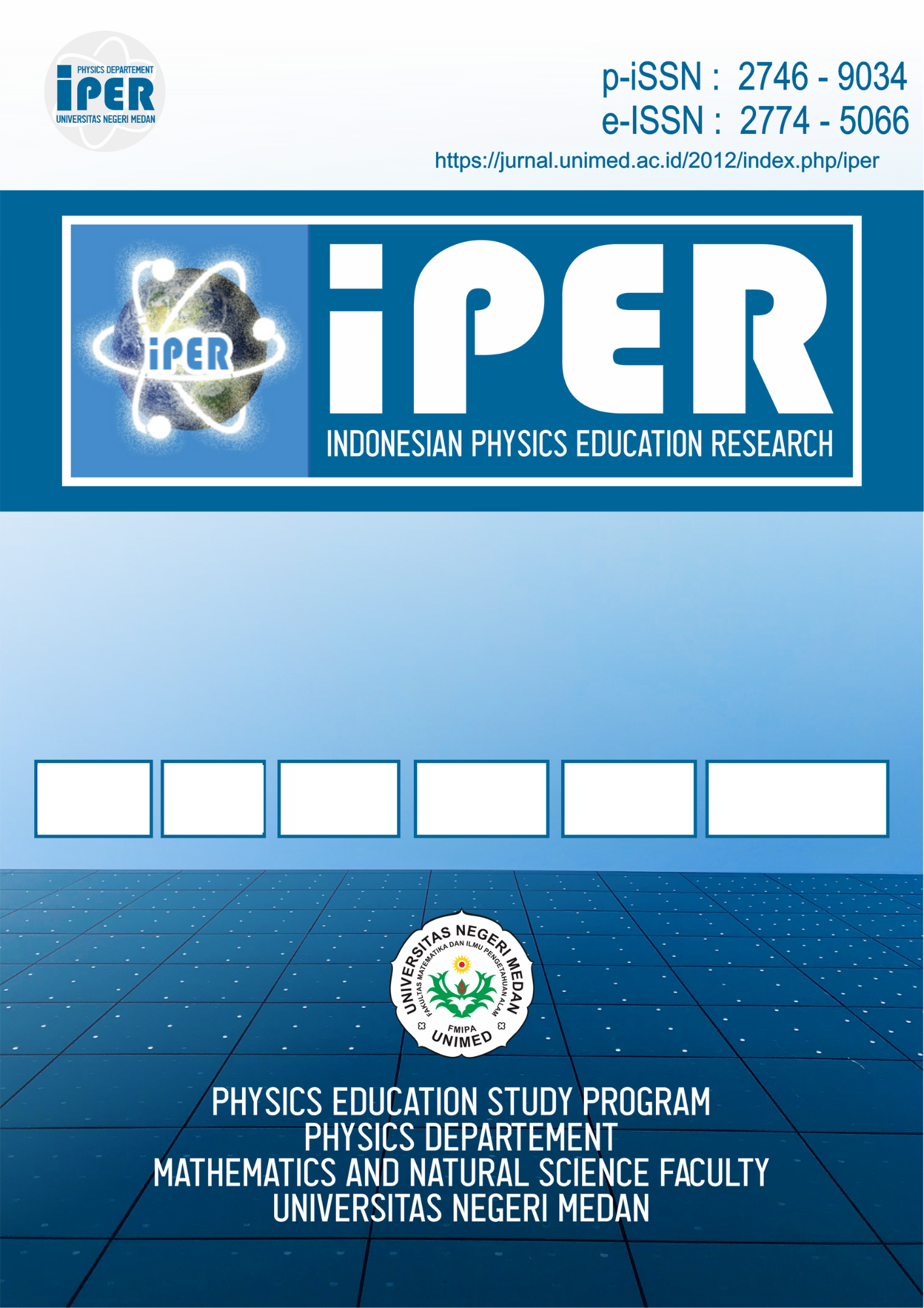PHYSICS E-MODULE BASED ON SCIENCE, TECHNOLOGY, ENGINEERING, AND MATHEMATICS TO IMPROVE LEARNING OUTCOMES OF HIGH SCHOOL STUDENTS AT SMA N 1 DELI TUA
DOI:
https://doi.org/10.24114/iper.v4i2.62989Keywords:
E-module, STEM, Feasibility, Practicality, EffectivenessAbstract
This development research aims to produce a Science, Technology, Engineering, and Mathematics (STEM)-based e-module to determine the feasibility, practicality, and effectiveness of a STEM-based physics e-module on the topic of work and energy for 10th-grade students. The research design used in this study was research and development (R&D) using the ADDIE model to develop the e-module on the topic of work and energy based on STEM. The population and sample of this study were 10th-grade students at SMAN 1 Deli Tua, and the sample consisted of 10th-grade students in the MIA 3 class at SMAN 1 Deli Tua. Based on the data analysis, the results of expert validation yielded a material expert validation score of 88.16% with a category of very feasible, and a media expert validation score of 90.7% with a category of very feasible. The results of the practicality test on a small scale showed that the ease aspect obtained a percentage of 91.3%, the attractiveness aspect obtained a percentage of 91.8%, and the usefulness aspect obtained a percentage of 90.2%. The results of the large-scale trial showed that the e-module obtained a highly practical category, reaching 92.6%. The ease aspect obtained a percentage of 93.2%, the attractiveness aspect obtained a percentage of 94%, and the usefulness aspect obtained a percentage of 90%. Both small and large-scale tests yielded a highly practical category. The effectiveness test showed that the average pre-test score obtained by students was 37.66, and the average post-test score was 89.6%. Based on the N-gain test, it was found that the average N-gain score of students was 0.84 or 83.94%, which is interpreted as having high effectiveness. Therefore, the product developed in this study is considered feasible, practical, and effective in supporting students' self-directed learning process on the topic of work and energy and can improve students' learning outcomesReferences
Handayani, ES. 2022.Pengembangan E-Modul Fisika terintegrasi STEM untuk melatih kemampuan berpikir kritis pada materi gelombang Bunyi dan Cahaya.Skripsi.Lampung . Fakultas Tarbiyah dan Keguruan Universitas Negeri Raden Intan
Rahmi, L. (2018). Perancangan E-module Perakitan dan Instalasi Personal Komputer Sebagai Media Pembelajaran Siswa SMK. 21(1), 105-111
Samudra, G.B., Suastra, I.W., Suma, K. (2014). Permasalahan-Permasalahan yang Dihadapi Siswa SMA di Kota Singaraja dalam Mempelajari Fisika. e-Journal Program Pascasarjana Universitas Pendidikan Ganesha. Vol 4
Undang-Undang RI Nomor 20 Tahun 2003. 2013.Undang-Undang Sistem Pendidikan Nasional. Bandung:Fokus Media
Muminah, I.H., Aripin, I. 2019. Implementasi STEM Dalam Pembelajaran Abad 21. Seminar Nasional Pendidikan





